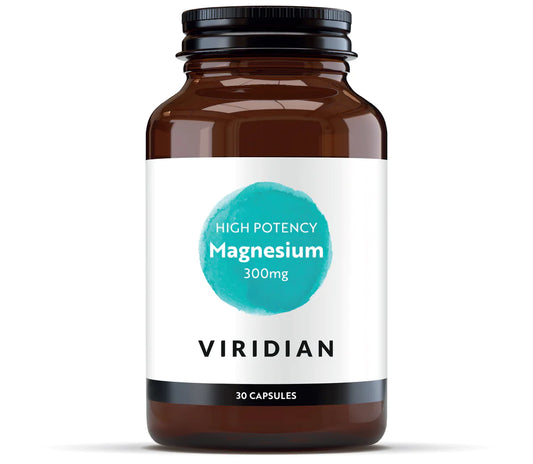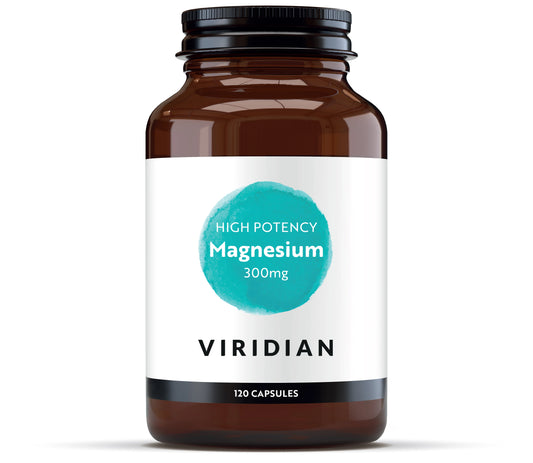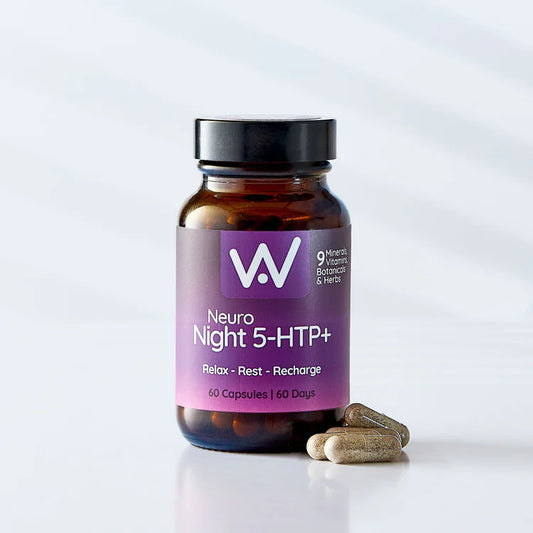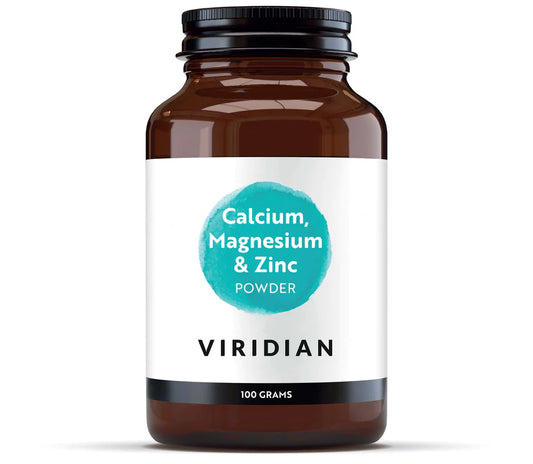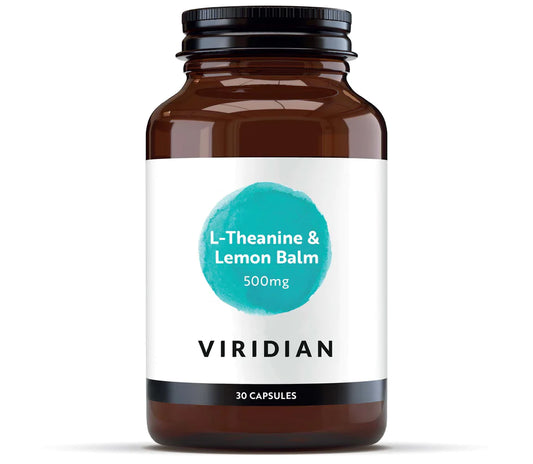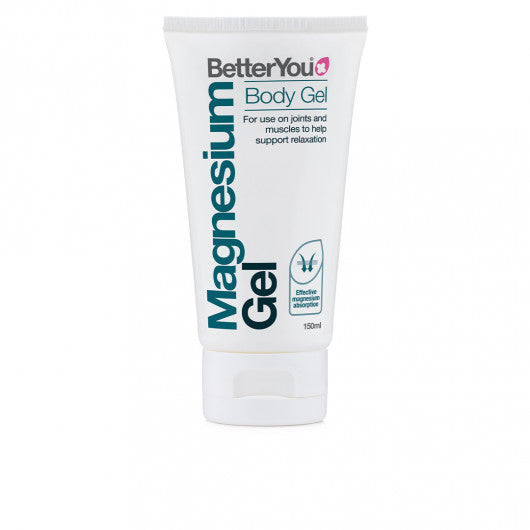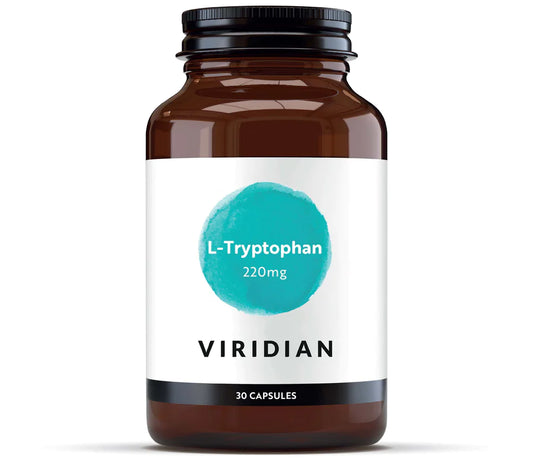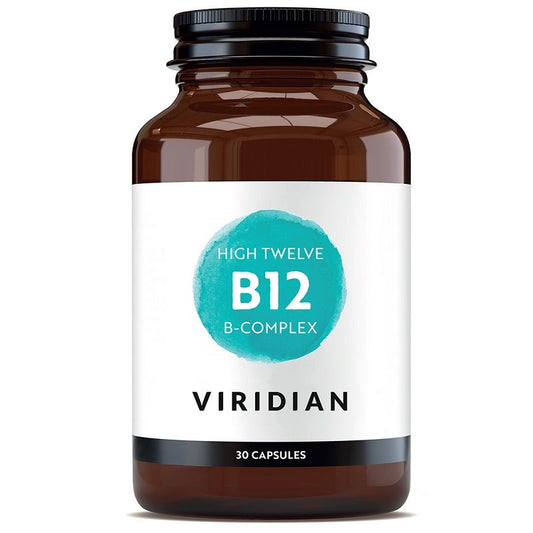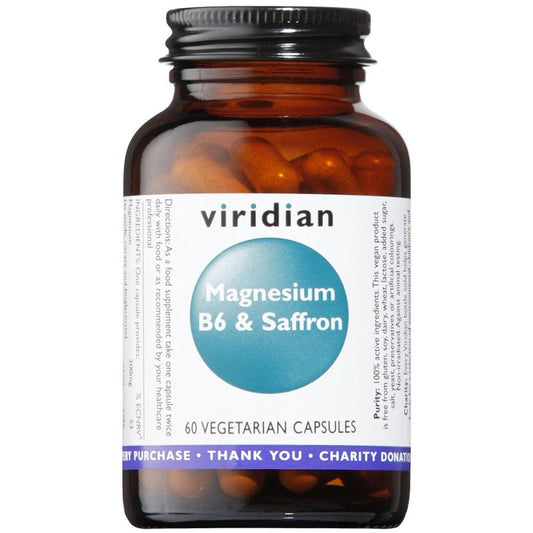Collection: Sleep Supplements
Enhance sleep quality, enjoy deep, restorative sleep and wake-up feeling revitalised and refreshed with these vitamins, minerals and botanical extracts.

-
Viridian Cherry Night 150g
Regular price £30.75 GBPRegular price -
Viridian Magnesium Bisglycinate 60 Capsules
Regular price £14.75 GBPRegular price -
Bristol Fungarium Organic Reishi 50ml
Regular price £35.00 GBPRegular price -
DIRTEA Reishi Mushroom Powder 60g
Regular price £34.99 GBPRegular price -
Viridian High Potency Magnesium 30 Capsules
Regular price £10.90 GBPRegular price -
Viridian High Potency Magnesium 120 Capsules
Regular price £21.40 GBPRegular price -
DIRTEA Mushroom Cacao Super Blend 150g
Regular price £39.99 GBPRegular price -
Well.Actually Neuro Night 5-HTP 60 Capsules
Regular price £20.99 GBPRegular price -
BetterYou Magnesium Sleep Spray 100ml
Regular price £14.99 GBPRegular price -
Viridian Organic Valerian Root 60 Capsules
Regular price £16.05 GBPRegular price -
Viridian Calcium Magnesium & Zinc Powder 100g
Regular price £12.15 GBPRegular price -
Viridian Liquid B12 50ml
Regular price £18.10 GBPRegular price -
Viridian L-Theanine & Lemon Balm 90 Capsules
Regular price £37.35 GBPRegular price -
Viridian L-Theanine and Lemon Balm 30 Capsules
Regular price £18.60 GBPRegular price -
BetterYou Original Magnesium Gel 150ml
Regular price £13.50 GBPRegular price -
Viridian L-Tryptophan 220mg 30 Capsules
Regular price £10.95 GBPRegular price -
Viridian High Twelve B12 B-Complex 30 Capsules
Regular price £8.60 GBPRegular price -
Viridian Magnesium B6 & Saffron 60 Capsules
Regular price £28.00 GBPRegular price -
Moksa Passadhi Serenity Natural Bath Salts
Regular price £22.00 GBPRegular price -
Moksa Shanti Peace Natural Bath Salts
Regular price £22.00 GBPRegular price -
Fourfive Reishi Bedtime Blend 60 caps
Regular price £21.99 GBPRegular price -
Dock & Bay Eye Mask Checking Out
Regular price £11.79 GBPRegular price
Sleep journal
-

Why Magnesium For Better Sleep?
Quality sleep is something that we all need but is increasingly elusive for many. Known as the “relaxation mineral,” magnesium helps support several bodily functions that directly contribute to better...
Why Magnesium For Better Sleep?
Quality sleep is something that we all need but is increasingly elusive for many. Known as the “relaxation mineral,” magnesium helps support several bodily functions that directly contribute to better...
-

Top 5 Products To Improve Your Sleep
Getting a good night's sleep is essential for overall health and wellbeing, but many struggle to achieve restful, uninterrupted sleep. Natural sleep supplements can offer a gentle and effective solution...
Top 5 Products To Improve Your Sleep
Getting a good night's sleep is essential for overall health and wellbeing, but many struggle to achieve restful, uninterrupted sleep. Natural sleep supplements can offer a gentle and effective solution...
Q&A on sleep
Why is sleep important?
Quality sleep is a cornerstone of a healthy lifestyle. Establishing good sleep hygiene practices and ensuring an adequate amount of sleep each night are essential for a healthy body and mind.
During sleep, the body undergoes crucial processes for physical restoration and repair. Tissues are repaired, muscles are rebuilt, and the immune system is strengthened.
Sleep also plays a pivotal role in cognitive functions such as memory consolidation, problem-solving, and learning. It enhances concentration, creativity, and overall mental performance.
Adequate sleep is linked to emotional well-being and mood regulation. Lack of sleep can contribute to irritability, mood swings, and an increased susceptibility to stress.
What is sleep hygiene?
Sleep hygiene refers to a set of practices and habits that promote good, quality sleep. Adopting proper sleep hygiene is crucial for establishing a healthy and consistent sleep routine. The key components of effective sleep hygiene include:
Consistent Sleep Schedule:
Maintain a regular sleep-wake cycle by going to bed and waking up at the same time every day, even on weekends. Consistency helps regulate the body's internal clock.
Create a Relaxing Bedtime Routine:
Establish calming pre-sleep rituals, such as reading a book, taking a warm bath, or practicing relaxation exercises. These activities signal to your body that it's time to wind down.
Optimise Sleep Environment:
Ensure your bedroom is conducive to sleep. This includes a comfortable mattress and pillows, as well as a cool, dark, and quiet environment. Consider using blackout curtains and earplugs if needed.
Limit Exposure to Screens:
Reduce exposure to screens (phones, tablets, computers, and TVs) at least an hour before bedtime. The blue light emitted from screens can interfere with the production of the sleep hormone melatonin.
Mindful Eating:
Avoid heavy meals, caffeine, and nicotine close to bedtime. These substances can disrupt sleep and cause discomfort.
Regular Exercise:
Engage in regular physical activity, but try to complete your workout at least a few hours before bedtime. Exercise promotes better sleep, but intense activity too close to bedtime may have the opposite effect.
Manage Stress:
Practice stress-reducing techniques such as meditation, deep breathing, or progressive muscle relaxation to relax the mind and body before sleep.
Limit Naps:
If you nap during the day, keep it short (20-30 minutes) and avoid napping too close to bedtime to prevent interference with nighttime sleep.
Watch the Clock:
Resist the urge to constantly check the clock, as it can contribute to stress and anxiety about not sleeping. If you can't fall asleep, consider getting up and engaging in a relaxing activity until you feel sleepy.
Limit Alcohol Intake:
While alcohol may initially induce drowsiness, it can disrupt the sleep cycle and reduce the overall quality of sleep. Limit alcohol consumption, especially in the hours leading up to bedtime.
Adopting these sleep hygiene practices can contribute to the creation of a sleep-friendly environment and promote restful, rejuvenating sleep.
Which vitamins and minerals support sleep?
Several vitamins and minerals play a crucial role in supporting sleep by influencing various physiological processes in the body. Here are key vitamins and minerals that contribute to a healthy sleep cycle:
- Melatonin
- Magnesium
- Vitamin D
- Calcium
- Vitamin B12 & B6
- Zinc
- L-tryptophan
While obtaining these nutrients through a balanced diet is ideal, supplements may be considered for those with deficiencies or specific dietary restrictions.





